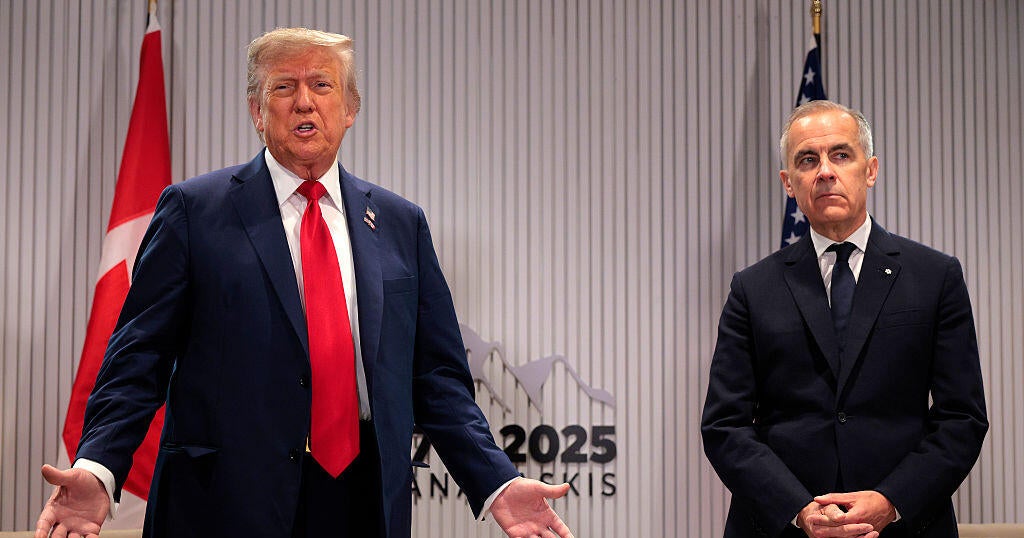Trump Suspends Trade Talks with Canada Over Digital Services Tax
President Trump has halted trade negotiations with Canada, citing the newly imposed digital services tax on major tech companies as a direct threat to U.S. businesses.
Subscribe to unlock this story
We really don't like cutting you off, but you've reached your monthly limit. At just $5/month, subscriptions are how we keep this project going. Start your free 7-day trial today!
Get StartedHave an account? Sign in
Overview
- President Trump announced the suspension of trade talks with Canada due to its new digital services tax affecting major tech companies.
- The tax imposes a 3% revenue levy on companies like Amazon, Google, and Meta, leading to significant financial implications for U.S. firms.
- Trump views Canada's tax as a direct attack on American businesses, prompting the U.S. to consider imposing new tariffs.
- The digital services tax could result in U.S. companies facing a $2-3 billion tax bill, further straining trade relations.
- The termination of trade talks may escalate tariffs on both sides, impacting consumers and businesses in both the U.S. and Canada.
Report issue

Read both sides in 5 minutes each day
Analysis
Center-leaning sources frame Trump's termination of trade talks with Canada as a decisive response to perceived economic aggression, emphasizing the digital services tax as a significant issue. The tone reflects a mix of concern for U.S. interests and criticism of Canada's policies, revealing an implicit bias towards protecting American businesses.
Articles (18)
Center (7)
FAQ
Canada's digital services tax (DST) is a 3% levy on certain revenue earned from engaging with online users in Canada by large foreign and domestic businesses. It affects major tech companies like Amazon, Google, and Meta that generate significant digital services revenue in Canada.
President Trump suspended trade talks with Canada because he viewed Canada's new 3% digital services tax on major U.S. tech companies as a direct threat to American businesses. He is considering imposing tariffs in response, escalating trade tensions.
The digital services tax could result in U.S. companies facing a $2-3 billion tax bill annually, significantly affecting their revenues and contributing to strained trade relations between the U.S. and Canada.
Canada's digital services tax law received royal assent on June 20, 2024, and came into force on June 28, 2024. Affected businesses must register for a DST program account by January 31, 2025, and the first payment was due on June 30, 2025.
The digital services tax applies to four main categories: online marketplace services (e-commerce platforms, ride-sharing apps), online advertising services, social media services, and user data monetization (sale or licensing of user data from Canadian users). Certain exclusions apply, such as payment-only platforms and private communication tools.
History
- 4M

 11 articles
11 articles

















